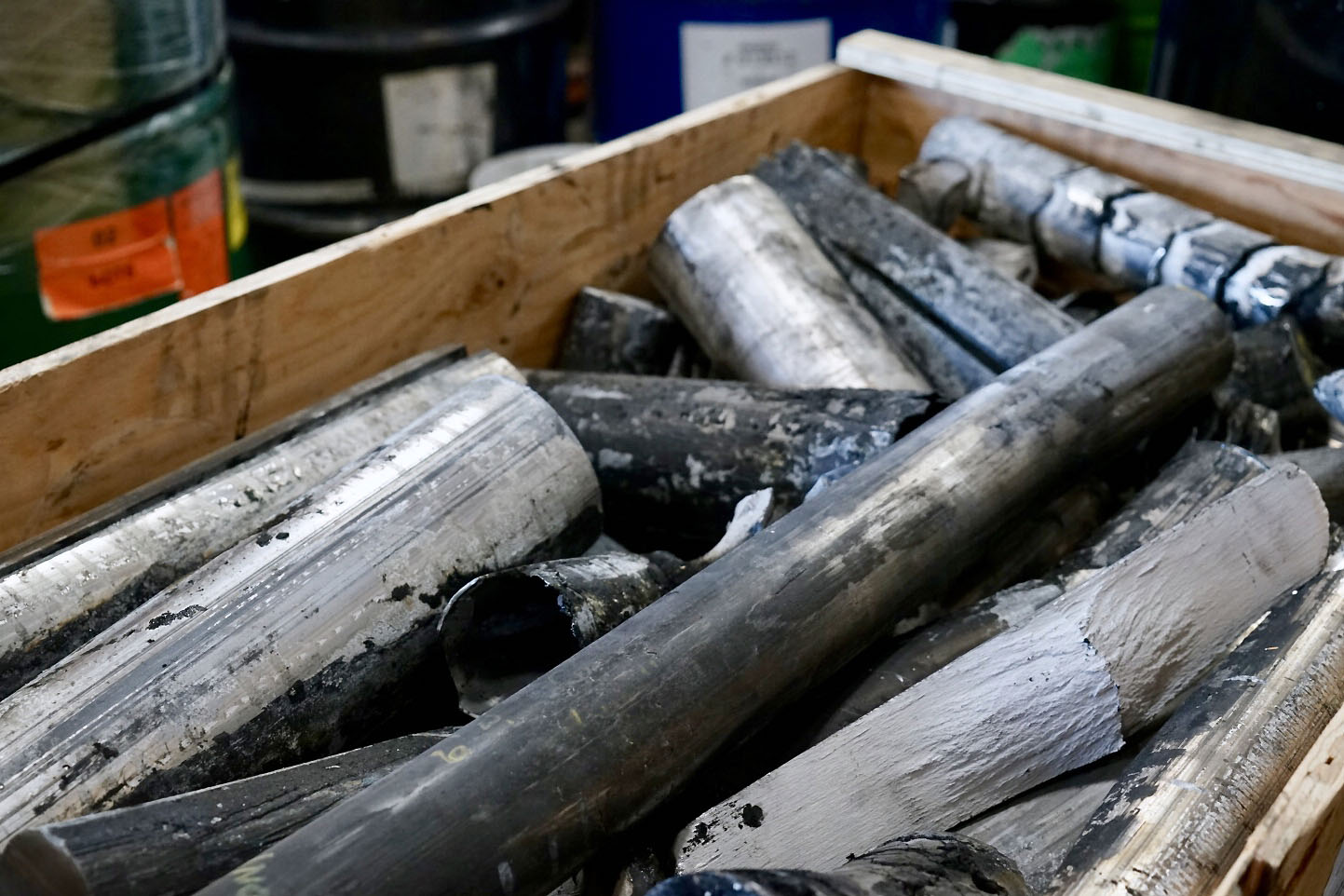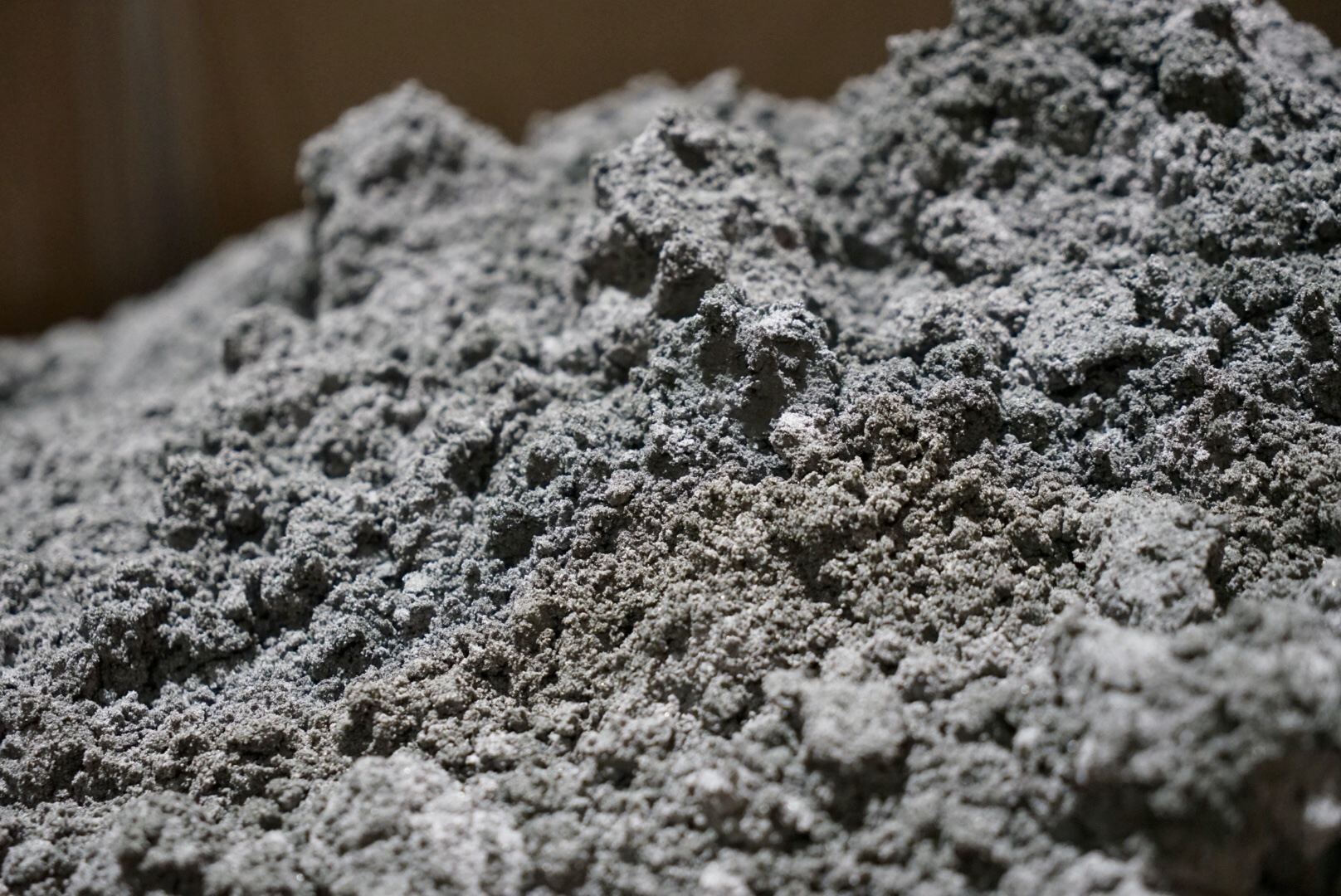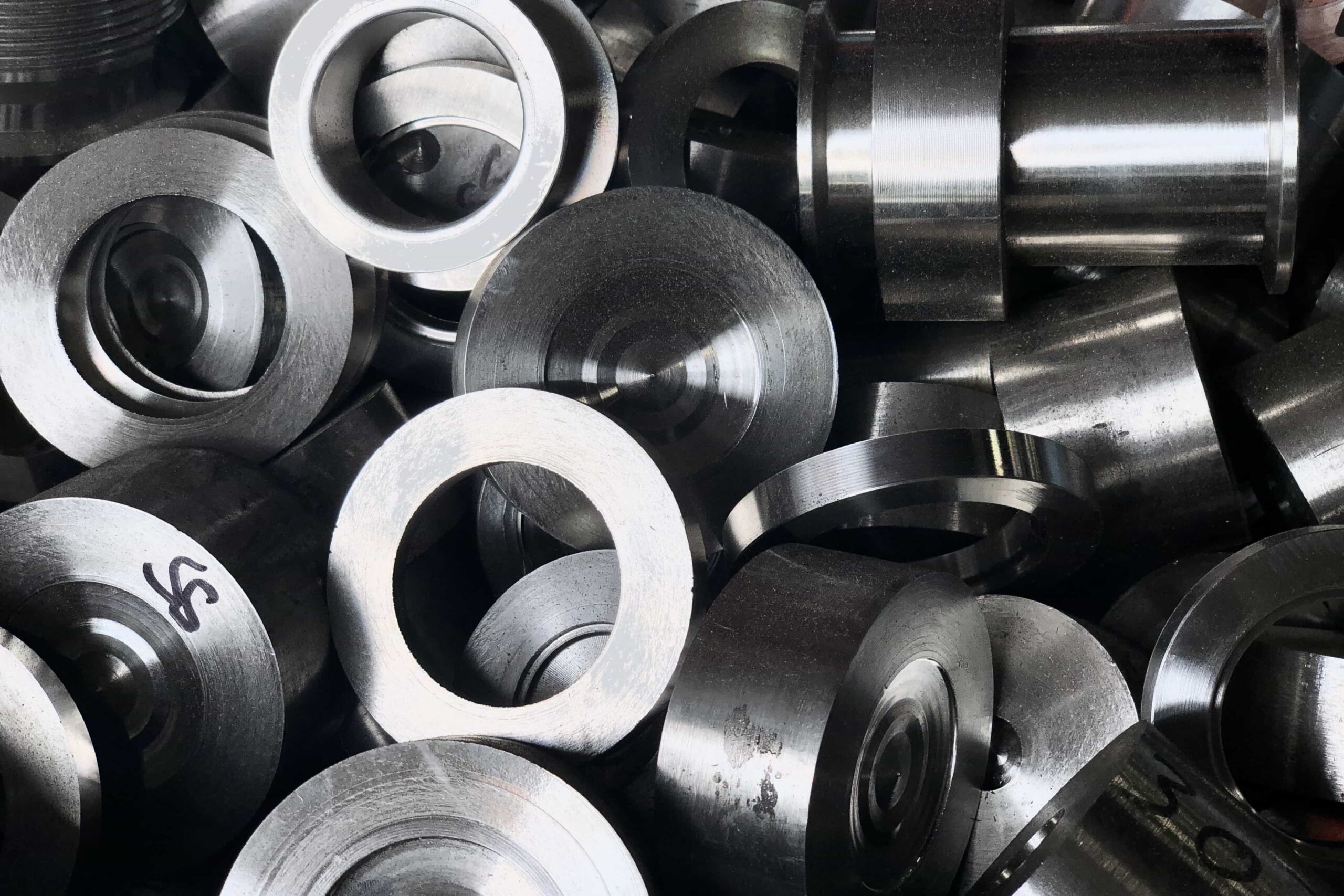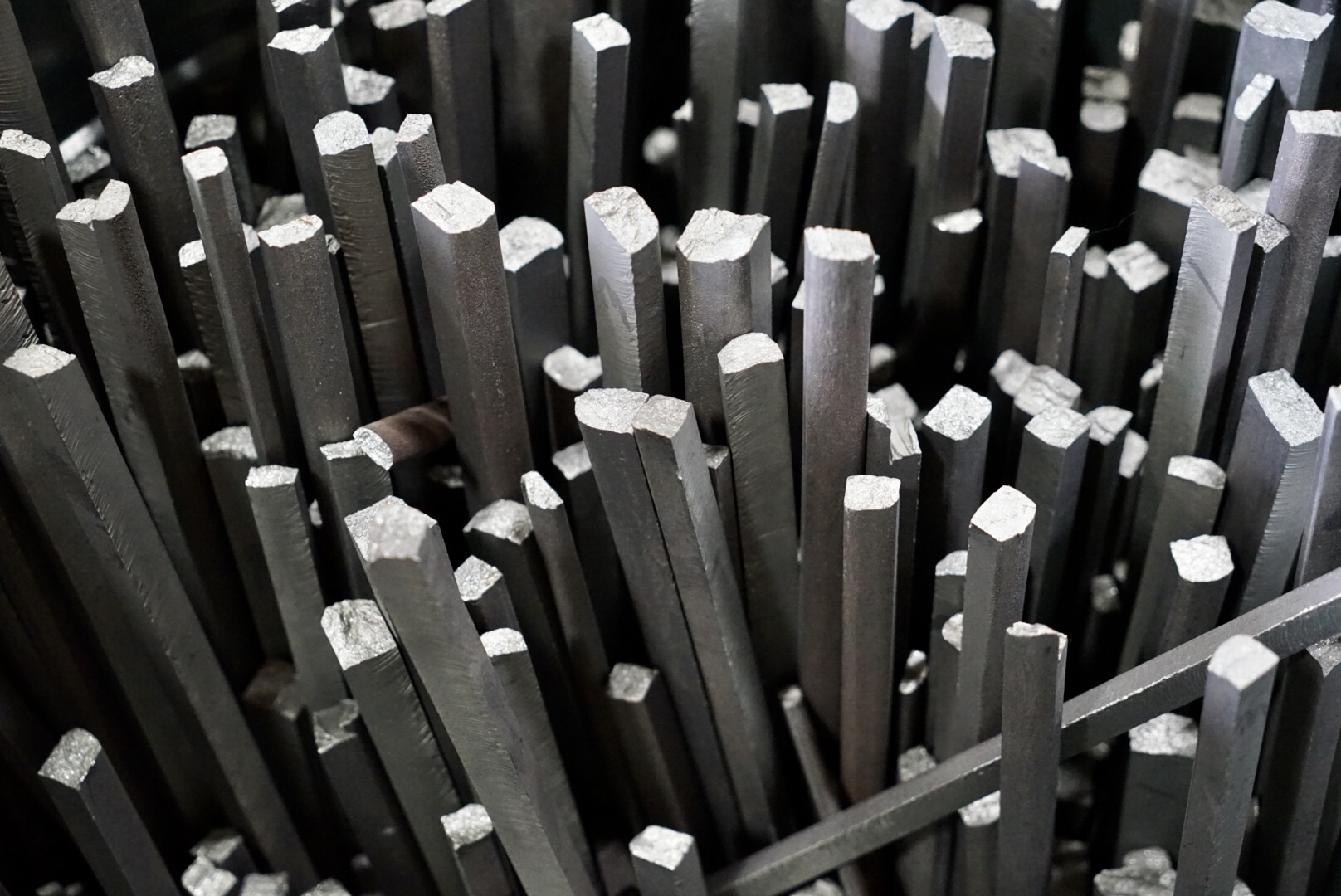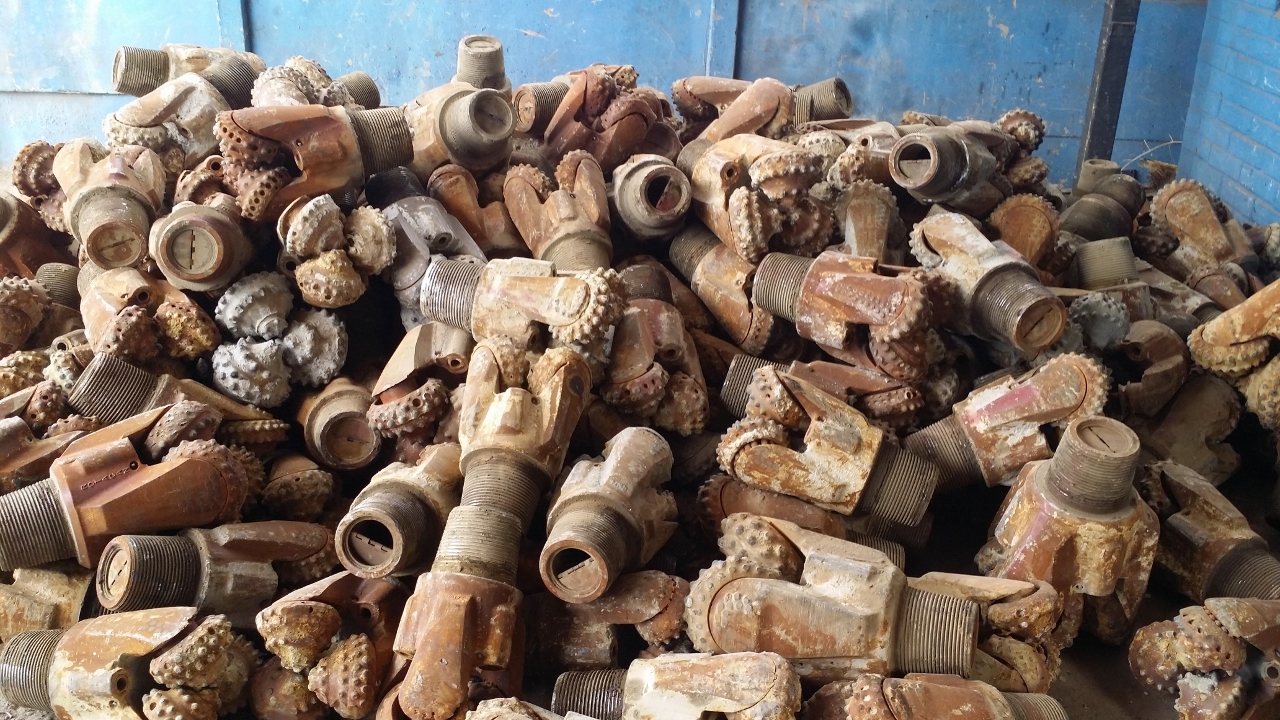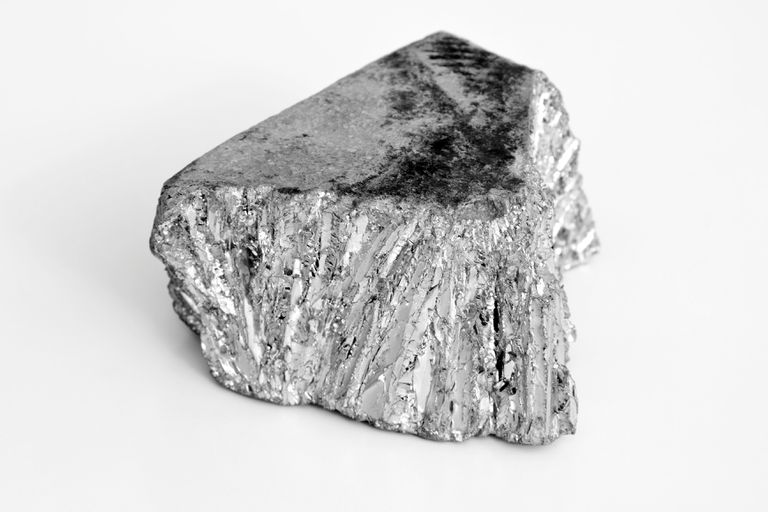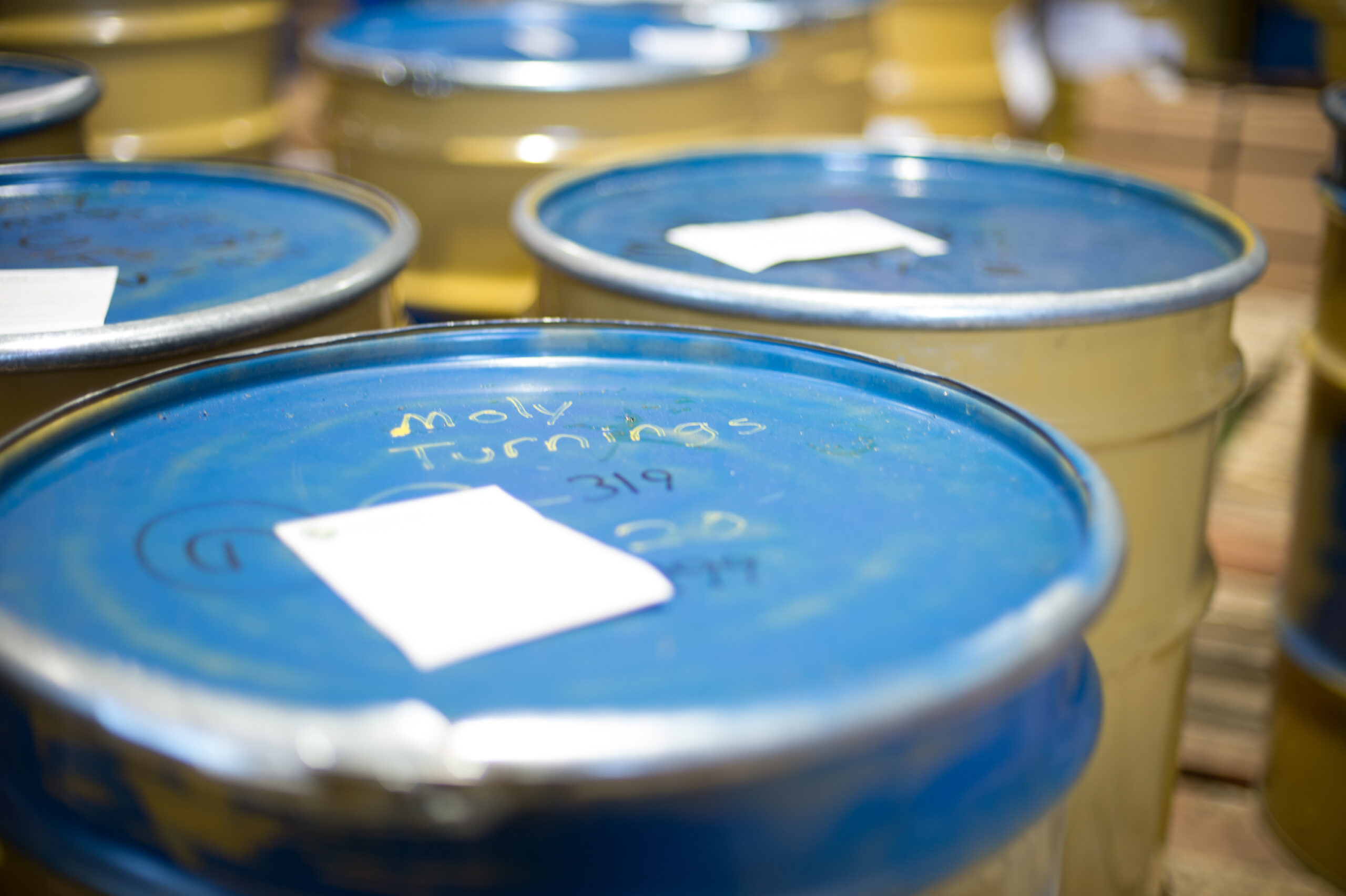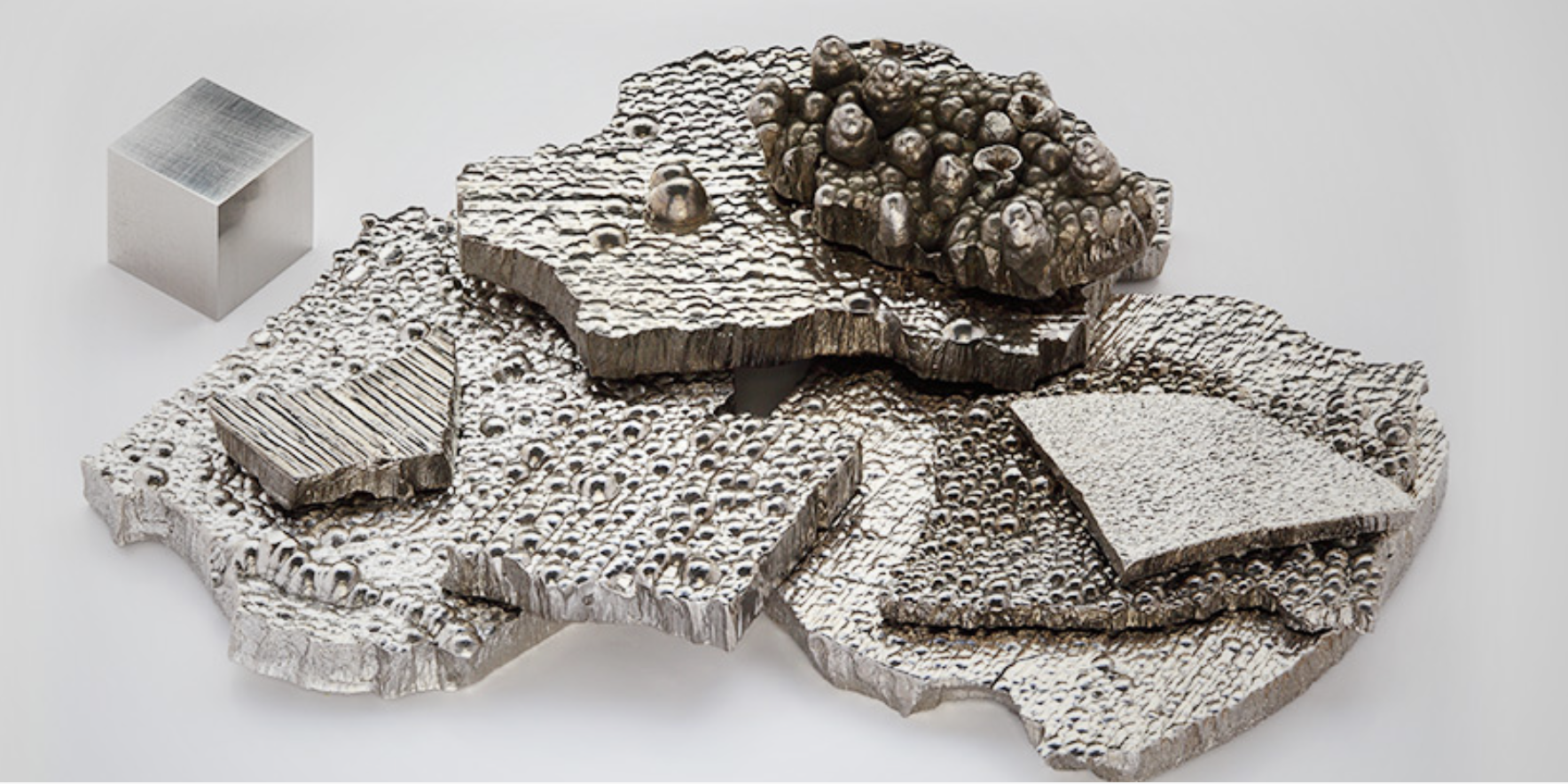Developing alternative technologies to totally eliminate hazardous metal wastes is easier said than done, but recycling these hazardous waste metals is a solution to this problem.
Continue readingMetal Powders Recycling in Additive Manufacturing
Globe Metal has been servicing traditional industrial manufacturing accounts for over 40 years. Keeping a pulse on the scrap metal business, we see manufacturing processes change dramatically.
Continue readingThe Importance of Superalloys
The use of superalloys is crucial in today’s modern high-tech world. Many of these high-performance alloys are nickel-based containing the alloying elements of Cobalt, Tantalum, Molybdenum, Tungsten, Titanium, and Rhenium.
Continue readingGlobe Metal is Charting New Territory in the Metal Recycling Industry
Jeff Solomon, CEO and founder of Globe Metal Recycling, had his first introduction to the metal scrap business at the age of 16. His next-door neighbour, who was in the industry, gave him a summer job as a common labourer.
Continue readingImportant Points to Consider When Recycling Molybdenum
Globe Metal continues to play an active role in molybdenum recycling as the volumes for both buyers and sellers increasing in the global trade of molybdenum scrap metal.
Continue readingRecycling Mining Equipment and Machinery Best Practices
Globe Metal is always looking to develop the most advantageous metal recycling solutions. As a result, one of our areas of specialty is recycling metal generated by the mining industry.
Continue readingWhy Recycling Zinc Improves Your Bottom Line
What is Zinc?
Zinc is a multipurpose metal valued in many industries. It’s the fourth most widely used metal in the world following iron, aluminum, and copper. With annual worldwide consumption of 11 million tons, there are many uses of zinc metal. More than fifty percent of its annual production is used for galvanizing steel to protect it from corrosion. The two main types of zinc galvanization are hot-dip galvanizing and electro-galvanizing. The remainder is for used for producing casting alloys (die casts), metal alloys-brass and bronze, wrought alloys-rolled zinc, along with a large variety of zinc compounds and chemicals. These are often converted into a broad range of products from paint to batteries.
What Zinc Can Globe Metal Recycle
Globe Metal has traditionally handled recycled galvanized zinc in a series of forms such as skimming’s, slags, scales, plating baths, diecasts, and ingots. Our business continues to grow in the sector of soft metals as we buy and handle all kinds of zinc by-products in the form of powders, sludges, soft solids, and metal overspray. We recognize that secondary zinc material does not have a high value compared to the minor metals such as cobalt, molybdenum, or tungsten. However, manufacturers need to dispose of their industrial waste in an environmentally safe manner. The problem with zinc as solid waste is that it generally happens in large volumes. The total costs of transportation, treatment and disposal continually grow. With landfill sites filling up, coupled with the challenge by the public sector not to establish new ones, landfill-dumping costs increase every year.
At Globe Metal We Offer Big Savings
Companies who have to incur these costs think differently about their waste management. The good news is that multiple streams show vast improvement in terms of what is recyclable. We are finding lots of opportunities to recover scrap metal material; the benefits are significant when comparing disposal costs and environmental impacts.
Get the Most from Your Metal Waste
Are you looking to get the most from you zinc metal waste? We can help. Get on a fast track to selling your secondary zinc material waste streams. Here are some the following criteria we need to know to get you the best price for your zinc metal scrap. They are:
- Volume
- Zinc Content
- Moisture Content
- Impurities
- How is it packaged?
We can take care of recovering your secondary zinc material from anywhere in the world. Give us a call at 1-800-700-6382 or email us at sales@globemetal.com and we are glad to answer all of your questions.
The Do’s & The Don’ts Of Recycling Industrial Metals
Today, more and more companies are capitalizing on the benefits of the economic, environmental and energy savings associated using recycled metal materials. As the continued demand for non-ferrous materials increases, the role of the reservoir of non-ferrous metals in use becomes more critical. Whether you are a metal fabricator or an owner of a small industrial plant, the unrelenting pursuit of reducing costs is always a priority. Here are some easy tips to get you started when recycling industrial metals.
Globe Metal’s Proposed List of What To Do When Recycling Industrial Metals
-
Know the Value of Your Metals
Guaranteed that at the end of the day, the metal trader you deal with will pay you for the metals you bring. To get a handle on prices, study the market to stay current of the different prices. Remember prices are dependant on local demand and quantity.
-
Do Separate Your Scrap
Having your materials separated before it leaves your property is essential. Traders always prefer to buy clean loads. Consider setting up a system using separate containers or bins large enough to hold all the metal that you plan to scrap. Make sure you label each bin and organize them to be easily accessible. Ensure that the names are facing forward so that it’s easy to find the right bin when it’s time to recycle.
-
Know Your Materials
Most local scrap dealers are not advanced enough in their businesses to recycle industrial powders, sludges and residues. There is a vast unexploited waste stream in industries producing soft metal scrap. If you do not have a good handle on your materials, run an ICP test to identify all primary elements.
-
Keep Your Metal Clean
As waste streams continue to increase in value on the recycled metals market, it’s essential to keep your scrap metal in its cleanest form possible. Many processes will contribute oil, water and other contaminants that will get mixed in with your scrap metal. Even though the value of the metal remains unchanged, the treatment fees can reduce your return. You also want to make sure that other types of metal contaminants, if possible, are removed and sold separately.
Globe Metal’s Proposed List of What NOT To Do When Recycling Industrial Metals
-
Treating Waste Like Garbage Is A Mistake
Today, many companies and industries view waste as a way to increase their revenues through recycling and find ways to re-use materials or sell it to someone who can use them. Remember, waste is just a “resource of place.” Need some help to take the guesswork out of your specific waste streams? Give us a call, we’re happy to help.
-
Don’t Misidentify The Metal You Intend To Recycle
Make sure that the scrap metal you think you have is the metal you do have. Otherwise, you’ll be disappointed with the price you get, as it will be lower than expected. There are simple tests you can use to identify your scrap metal: a magnet test to separate ferrous from non-ferrous material and spark testing come to mind.
-
Be Careful Not To Mix Your Metal Types
When separating your scrap metals into types, make sure that you don’t mix them. You want to avoid confusion before your scrap metal is on the scale. Globe Metal can help you identify your scrap, so you receive the best price on the market for it.
-
Do Not Expect Your Local Scrap Dealer To Just Give You The Best Price
Choosing a scrap metal recycling facility doesn’t take much time to research. The time you spend will be worth it. Of course price and payment are essential factors, but they are not the only ones. Pick a facility that is a trusted leader in the industry, one that has a quick payment system and one with correctly calibrated scales.
Following these guidelines will help you get the most out of the metals you’re looking to recycle. To find out how your business can benefit by working with a metal broker, contact Globe Metal today.
Globe Metal purchases and provides metal recycling and reclamation services for spent catalysts, metal scrap, residues, sludges and slurries. Spent catalysts, residues and sludges may contain one or more metals or metal compounds: cobalt (Co), copper (Cu), chromium (Cr), gallium (Ga), gold (Au), iridium (Ir), molybdenum (Mo), nickel (Ni), niobium (Nb), palladium (Pd), platinum (Pt), selenium (Se), tellurium (Te), Titanium (Ti), tungsten (W), rhenium (Re), rhodium (Rh) and others.
For recycling solutions or to sell your spent, waste, scrap, residual, or off-spec material containing metals or metal compounds, please send us an email at sales@globemetal.com or reach out to us at 1-800-700-6382.
Follow us on LinkedIn and like us on Facebook to learn about metal recycling knowledge and latest news.
Globe Metal is a proud member of Minor Metals Trade Association.
5 Key Benefits of Recycling Cobalt
Every day, we help environmentally-minded companies keep metals out of landfills so these materials can find new life in new production processes. Cobalt is one of these metals, which is great because as businesses continue to become more aware of the economic and environmental benefits associated with recycling cobalt and other metals, the critical role of supply from secondary sources becomes more evident.
That’s where Globe Metal comes in.
Cobalt is fundamental to so many industries, as it enables technological developments and contributes to a low C02 future. Using secondary source recycled metal over primary sources also helps your bottom line. And isn’t that the bottom line for so many businesses?
As the benefits of recycling Cobalt are becoming increasingly important for society and industries, let’s look at them in more detail.
1. Global Demand For Cobalt Merits A Strong Secondary Market
Cobalt is used in all kinds of industries, from the manufacturing of ceramics to the making of alloys for magnetic and stainless steels in the automotive and aeronautical industries. And demand is growing. The electric vehicle sector, for one, needs cobalt for its batteries and chargers. With the demand for cobalt increasing, there are supply chain issues in these industries. Approximately 50% of world cobalt reserves are in The Democratic Republic of Congo (DRC). With the concentration of cobalt sourced from this politically sensitive country, there is a growing concern that world supplies will not be met. Finding new sources of cobalt, particularly regarding secondary sources, will be a game-changer for most metal markets.
2. Cobalt Is Infinitely Recyclable
When non-ferrous metals like Cobalt go through the recycling process, their structural integrity does not degrade. It stays the same and, as a result, can be recycled an infinite number of times. Scrap metal is considered to be a “continuous resource,” as it can be re-melted and contribute to making new products over and over again. Consider cobalt to be a resource that can never run out.
3. Energy Efficiency Is Cobalt’s Calling
Even within just one barrel of scrap cobalt, a significant amount of energy can be conserved. Recycling cobalt saves energy that otherwise gets consumed when drilling for ore, refining and other processes in the manufacturing cycle.
4. The Economy Benefits When Cobalt Is Recycled
Studies across Europe, the U.S. and Canada all show the same results: the recycling industry generates jobs and enhances the economy. The Canadian Association Of Recycling Industries (CARI) published an informal survey stating that the industry directly employs 34,000+ people, and 85,000+ people indirectly. Recycled materials reduce production costs and allow manufacturing companies to be more competitive. The metal recycling industry is a force for innovation, driving new technologies and products.
5. Sustainability and the Environment
By definition, metal recycling is sustainable to the economy and the environment. Recycled cobalt and other metals use significantly less energy, reduce greenhouse gases, maximize the use of natural resources, and diverts metal materials from landfills.
At Globe Metal, we recycle all forms of Cobalt. Give our expert staff a call, and find out how your business can benefit in sustainable and economical ways by recovering your metal waste.
Important Facts About Tungsten Carbide Soft Scrap Recycling
Tungsten is a crucial raw material of great economic significance globally. It’s one of the most durable metals and has a variety of uses throughout many industries. That is why this post is designed to provide you with essential facts about Tungsten Carbide Soft Scrap Recycling. We’ll highlight its sources and forms, provide facts about how it’s recyclable, and detail particular security recommendations to consider when recycling this metal.
Tungsten Carbide Sources & its Forms
The most recognized source of carbide soft scrap, also known as “grinding swarf,” comes from metalworking manufacturing industries. It’s a product derived from grinding, finishing, cutting, shaping and forming when using tungsten carbide tools such as saws, drills, cutting tools, end mills and in-tool parts such as drill bits. Manufacturing is not the only industry that produces tungsten carbide soft scrap. In fact, a variety of industries produce it, including woodworking and petroleum. Also, the mining industry produces tungsten carbide soft scrap, as it is used as a coating spray.
There are many forms of Tungsten Carbide sludge to be recycled. They are:
- Scrap powder, which is the material used in the thermal spray process for hard facing.
- Filter scrap.
- Including scrap from carbide cartridge filters filled with wet or dry carbide or from metal or paper carbide filters.
- Tungsten alloys include:
- Densalloy-sludge
- Heviment-sludge and grindings
- Mallory allow-sludge, grinding.
Understanding The Composition of Your Recyclable Tungsten Carbide Is Key
Now that we’ve listed the different sources and forms of Tungsten Carbide and its untapped waste stream, you can see how a lot of these soft scrap materials are recyclable. We can also agree that most manufacturers have a good knowledge of materials going into their processes and the waste stream coming out. Most industries have access to a safety data sheet (SDS), which is a catalogue where you can the find complete information on the chemical composition of all materials.
It’s best that you have some reasonable idea of what other materials are in your sludge, grinding or powder materials. If you have no idea of the composition, Globe Metal is fully transparent with its ICP testing and can give you full lab results. We’re specific with every load of soft metal material that we receive. As for moisture content, there is no issue for recycling, as Tungsten Carbide can is recyclable whether it is wet or dry.
Special Security Recommendations
Many manufacturing industries can naturally produce dust in large quantities. With health and safety standards in place in the province of Quebec and Canada, there are control measures to regulate the amount of dust that goes into the atmosphere, and there are provisions for respiratory protection. These same safety standards need to be in place when collecting your soft metal materials for recycling as well. From a health and safety standpoint, it’s always best to proceed with caution. Soft metal dust is an irritant and can be harmful to your lungs.
Store your sludge, grindings, and turnings in a secure area, as Tungsten Carbide is a high-value commodity. We’ve heard many stories from companies we work with that find this material missing. Once again erring on the side of security is best.
Conclusion
It takes time to gather the right information. If you need any more guidance, feel free to reach out with your questions. Globe Metal specializes in helping companies recycle soft metal materials.
Globe Metal purchases and provides metal recycling and reclamation services for spent catalysts, metal scrap, residues, sludges and slurries. Spent catalysts, residues and sludges may contain one or more metals or metal compounds: cobalt (Co), copper (Cu), chromium (Cr), gallium (Ga), gold (Au), iridium (Ir), molybdenum (Mo), nickel (Ni), niobium (Nb), palladium (Pd), platinum (Pt), selenium (Se), tellurium (Te), Titanium (Ti), tungsten (W), rhenium (Re), rhodium (Rh) and others.
For recycling solutions or to sell your spent, waste, scrap, residual, or off-spec material containing metals or metal compounds, please send us an email at sales@globemetal.com or reach out to us at 1-800-700-6382.
Follow us on LinkedIn and like us on Facebook to learn about metal recycling knowledge and latest news.
Globe Metal is a proud member of Minor Metals Trade Association.

